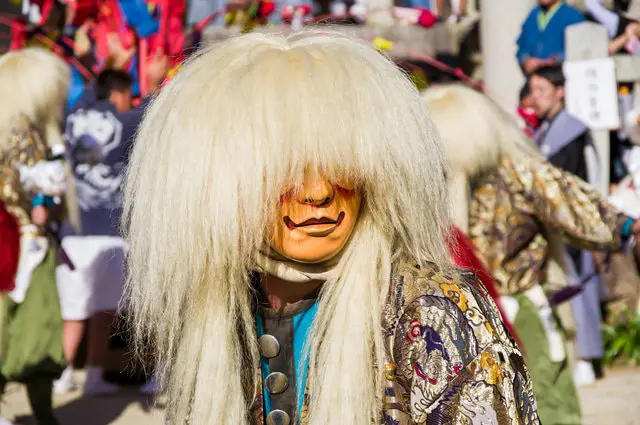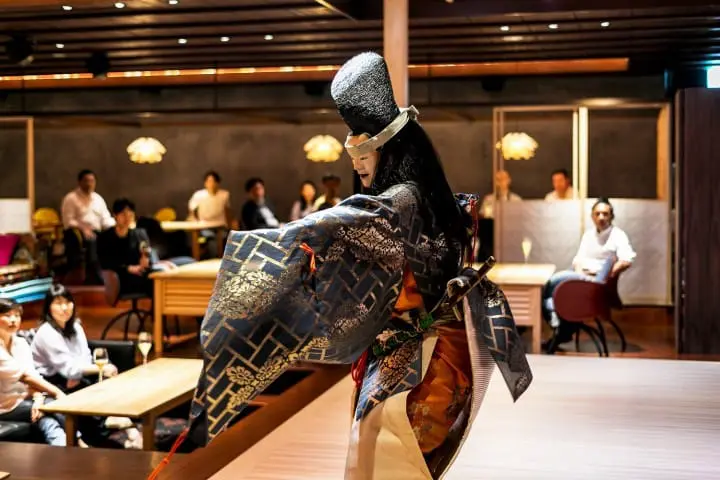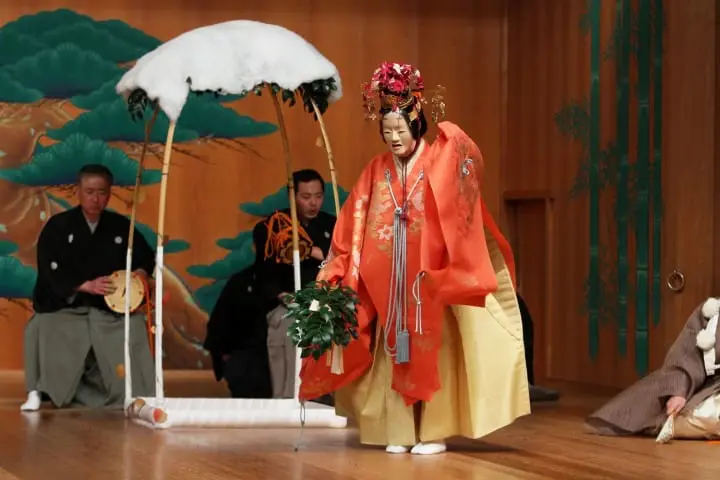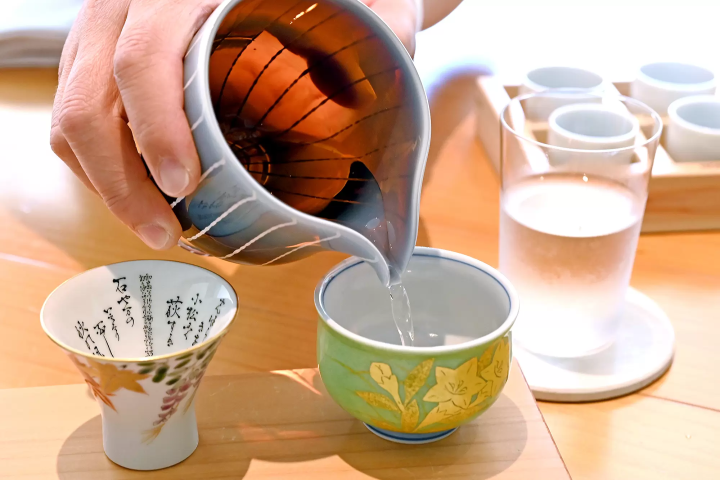Kabuki Theater - Japanese Encyclopedia

Kabuki is a traditional form of theater with a history spanning over 400 years. This performing art entertains the audience with acting, dancing, and music, and is especially popular for its spectacular stage effects.
Originating over four hundred years ago, kabuki is a traditional form of theater that is still popular today. These performances entertain the audience through combining the three elements of acting, dancing, and music.
The Beginnings of Kabuki
The origins of kabuki lie in the Edo period, with one woman, who developed a new form of dance called kabuki odori. This name, said to come from the word kotobuku, which can mean avant-garde and convention-breaking, quickly spread and became the term for a type of popular theatrical performance. However, sometime later women were banned from performing out of fears for public morality.
This tradition continues today, with only men taking to the kabuki stage. Even women's roles are played by male actors, called onnagata. These actors' excessively feminine movements and expressions create the illusion of femininity, and are one of the highlights of any kabuki performance.
The Secret of Kabuki's Success

photo by PIXTA
Unlike modern theater, kabuki-style acting does not attempt to appear natural or realistic. In fact, it puts emphasis on over-exaggeration. From the unique outfits and disheveled wigs to the wide-eyed glares, distinct movements and poses - everything is exaggerated, and everything has impact.
Another well-known characteristic of kabuki is the actors' make up, called kumadori. In fact, just by looking at a particular actor's face, you can tell whether he is a good guy (red-striped make up) or a bad guy (blue-accented make up).
Over the years, much effort has also been put into the stage and props used in kabuki. For example, there is the hanamichi ("flower path"),ssa part of the stage which extends into the audience. Then there is the mawari butai, or "revolving stage", which slowly spins around in accordance with the changes of scene.
What's more, both the background music and sound effects are played on traditional Japanese instruments, and from certain parts of the audience you can see the musicians performing - make sure to keep an eye out from where you're seated!
Where can I see Kabuki?
If you are in Tokyo, you can see Kabuki all year round at the Kabukiza Theater in Ginza, to name but one arena. If you are in Osaka, Kyoto, or elsewhere, performances take place regularly at fixed times. Tickets can be bought in person at the theater counter, online, or through phone reservations.

photo by PIXTA
As is the case with opera and other types of theater performance, kabuki is more enjoyable if you have some background knowledge about the story and characters. Once you have decided which show you want to watch, make sure to do some research before you go. The leaflets found in theaters can be treasure-troves of information, with explanations about the general plot, highlights, music, and character cast.
Even many Japanese people find the prospect of going to a kabuki performance quite daunting - but it was originally a form of entertainment for ordinary folk. Throughout its history, kabuki has incorporated new ideas while protecting its tradition to become the refined performance it is today. Make sure to see a show next time you're in Japan!
This is the official account of MATCHA's editorial department. Our articles feature useful travel information for visitors to Japan, from how-to guides to recommended places to visit.


































![[Shinjuku Nishiguchi HALC] About the d Point Campaign](https://resources.matcha-jp.com/resize/720x2000/2026/02/14-258714.webp)



